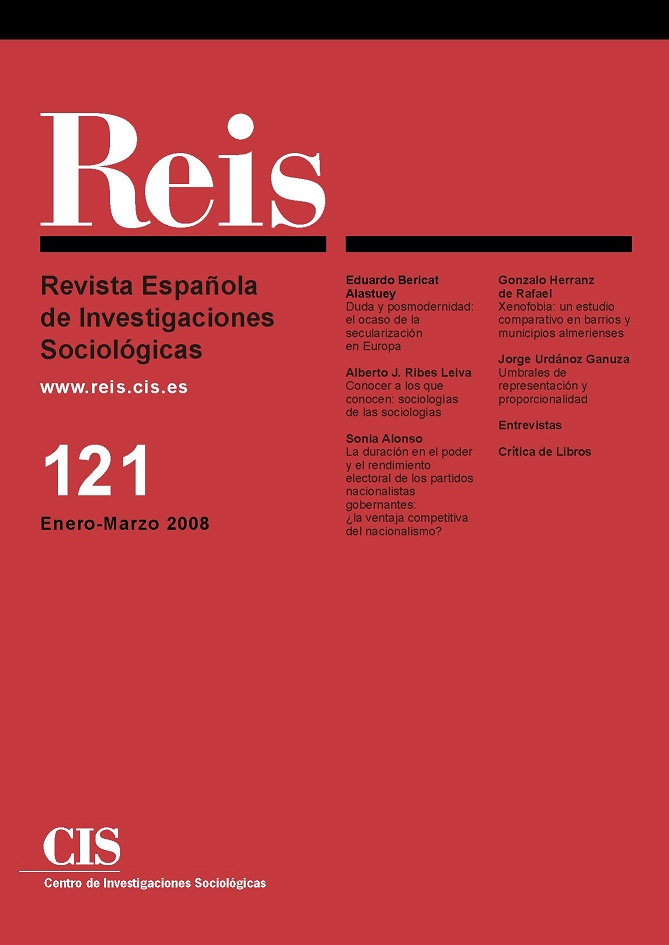Duration in office and the electoral performance of incumbent nationalist parties: the competitive advantage of nationalism?
DOI:
https://doi.org/10.5477/cis/reis.121.81Keywords:
Political Parties, Nationalism, Electoral Performance, Political Survival, ElectionsAbstract
Electoral support for ethno-nationalist parties is based on the mobilisation of ethnic and cultural identities, which are generally understood to be primordial and, therefore, deeply rooted and highly stable. This paper poses the following question: to what extent do ethnic or national identities provide nationalist parties with a competitive advantage with regard to other parties, based on other types of allegiance, such as class or religion? In order to answer this question, the paper compares the incumbent nationalist and non-nationalist parties of the regional governments of Canada, Denmark, Spain, Italy and the United Kingdom in the last five decades with respect to three empirical indicators: electoral performance, fluctuation of voting levels and how long governing parties stay in office. The results suggest that incumbent nationalist parties are, in general, less severely punished by voters at election time than non-nationalist parties, especially in coalition governments. However, this apparent advantage does not provide nationalist parties with longer periods in office.
Downloads
Downloads
Published
How to Cite
Issue
Section
License
Copyright (c) 2024 Revista Española de Investigaciones Sociológicas

This work is licensed under a Creative Commons Attribution-ShareAlike 4.0 International License.
Permite Compartir — copiar y redistribuir el material en cualquier medio o formato, Adaptar — remezclar, transformar y construir a partir del material para cualquier propósito, incluso comercialmente.








